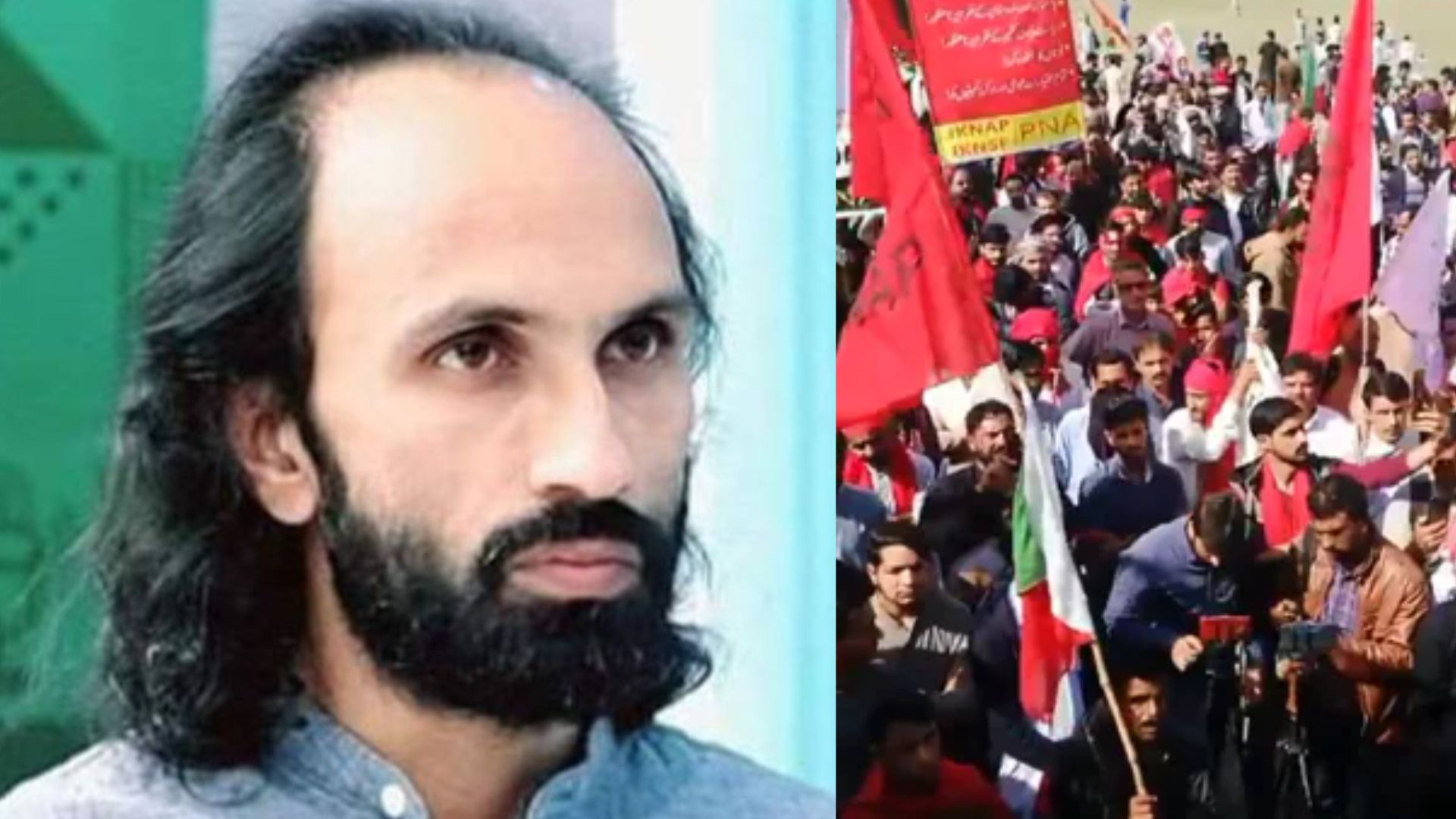Weeks after the recent protests against the rising prices of wheat and electricity in Pakistan-administered Kashmir, several people of Kashmiri origin in various parts of Pakistan have faced intimidation and threats, according to Kashmiri activists.
On May 15, at around 1 a.m., Kashmiri poet and journalist Ahmad Farhad was forcibly disappeared from his home in the Soan Gardens area of Islamabad. When the abductors returned to Farhad’s house to remove cameras and DVRs to cover up their crime, it became clear that intelligence agencies were behind this incident.
The state of Pakistan has made every effort to actively turn its people against it by forcibly disappearing them, extrajudicially killing them, and/or labeling them “terrorists” or “anti-state elements.” In doing so, the state has actively burdened Pakistan’s already overburdened criminal justice system with false and frivolous litigation against peaceful dissidents.
Who would want to abduct a poet? Do we need to ask that question in the state of Pakistan anymore? Unfortunately, it would appear so. Chief Justice Qazi Faez Isa, during proceedings of a case against enforced disappearances being live-streamed across the country, asked activist Amina Masood Janjua why the state or agencies would want to abduct her businessman husband, Masood Janjua, who was forcibly disappeared almost two decades ago.
This disconnect from reality was mercifully repaired by the Islamabad High Court’s adjudication of Ahmad Farhad’s case. The court made an unprecedented decision and summoned a sector commander of the Inter-Services Intelligence (ISI) over Farhad’s enforced disappearance, questioning the agency’s role in it. The real abductors were named so openly for the first time, and the poet was eventually recovered (although he is yet to be released).
When the abductors are put in the hot seat and that garners media attention, that is the only time people have returned to their homes.
However, the senseless and dangerous targeting of Kashmiri dissidents continues. On April 25, a plumber, Abdul Saboor, was forcibly abducted in broad daylight from Sohan Express Highway, Islamabad. The abductors were armed with the latest weapons and took Abdul Saboor away in a white Toyota Hiace with no number plate.
Saboor’s father, Muhammad Riaz, ran from pillar to post in search of his son. The Khanna Police lodged an FIR under Section 365 of the Penal Code after a delay of four days (which is a standard practice in cases of enforced disappearance and clearly indicates the powerful quarters involved in this practice).
State agencies first abduct citizens and then without accounting for the period of illegal detention, rope them into FIRs containing non-bailable offenses. This is process as punishment and abuse of law to suppress dissent.
After Riaz moved a habeas corpus petition before the Islamabad High Court on June 4, the government produced an FIR dated May 30, falsely implicating Saboor in a criminal case under the Anti-Terrorism Act and the Explosive Substances Act. No explanation was provided as to where Abdul Saboor was from April 25 to May 30, after known “unknown men” abducted him from the capital, in broad daylight.
This has also become a standard practice: rogue state agencies first abduct citizens and then without accounting for the period of illegal detention, rope them into FIRs containing non-bailable offenses. This is process as punishment and abuse of law to suppress and eliminate dissent.
Unfortunately, until the judiciary itself is able to recognize this practice in its jurisprudence and empower itself to nip this abuse of process/law in the bud, bails will be denied, as has been occurring in Ahmad Farhad’s case at the time of writing this article.
In the event that the state is unclear about the message it is giving to its citizens, let us explicitly say what message has been conveyed to us: no citizen should bother to reach out to the courts because by the time we make it to the courts, our loved ones will already have faced torture and illegal detention. The message being sent out is to exercise your lawful right of self-defense there and then against rogue agents of the state.
If this is the course of action the state wants peaceful citizens to adopt, then the only possible outcome is anarchy. It is high time for the powers that be to introspect and change their long-standing policy of enforced disappearance and abuse of criminal law to crush dissent.
In 70 years, this policy of oppression has only culminated in a sense of distrust among citizens against the state. This hatred will inevitably lead to more acts of violence. Instead of arresting and prosecuting actual terrorists, the state is too busy overburdening courts with frivolous litigation attempting to transform poets and plumbers into terrorists.

The writer is an Islamabad-based lawyer and human rights activist.

